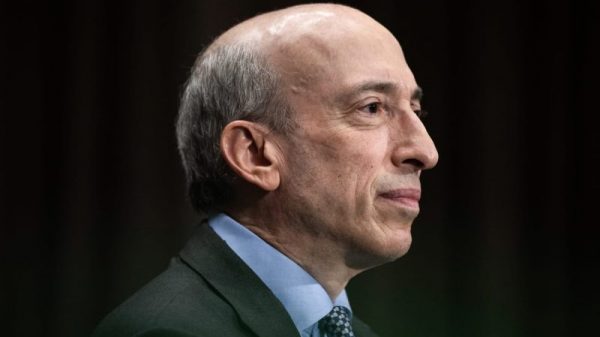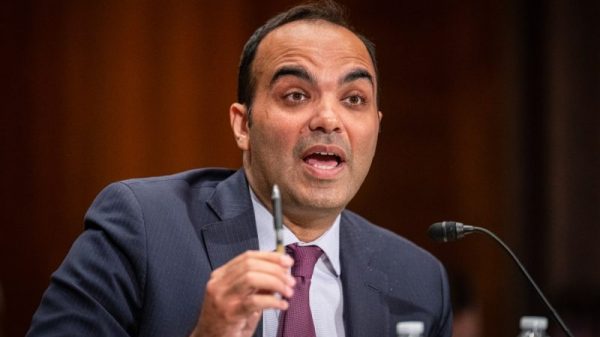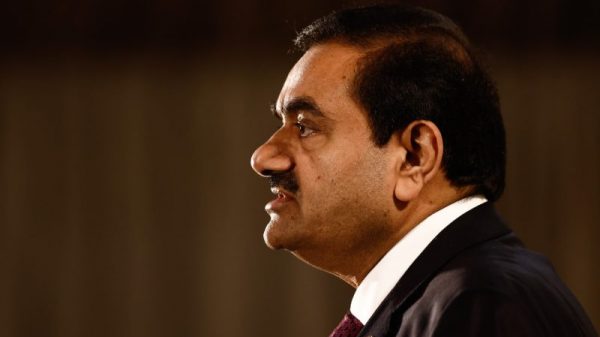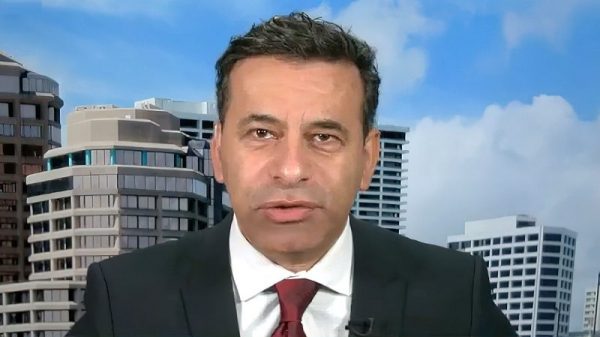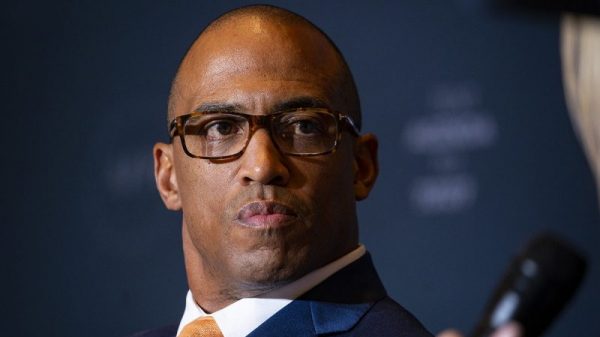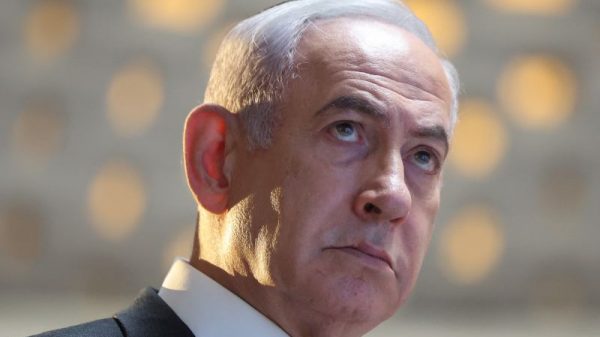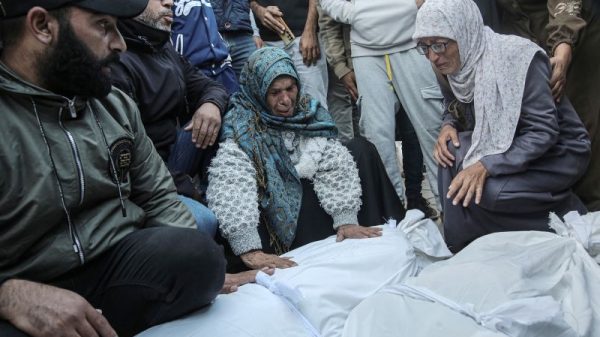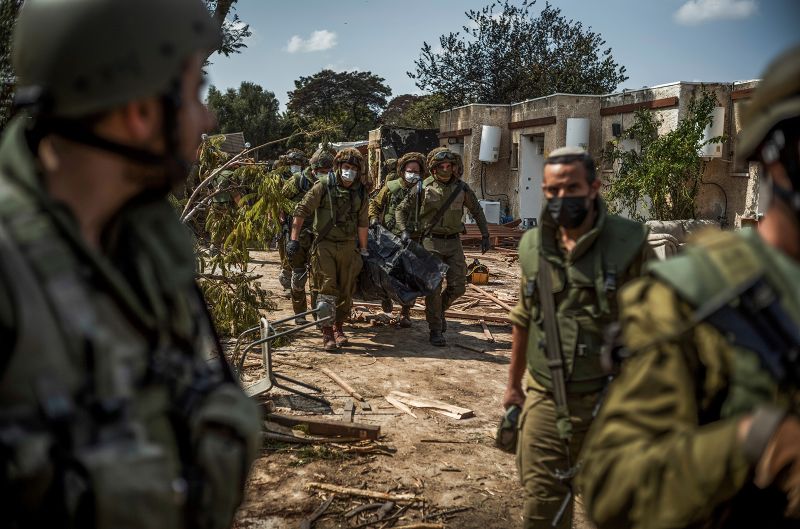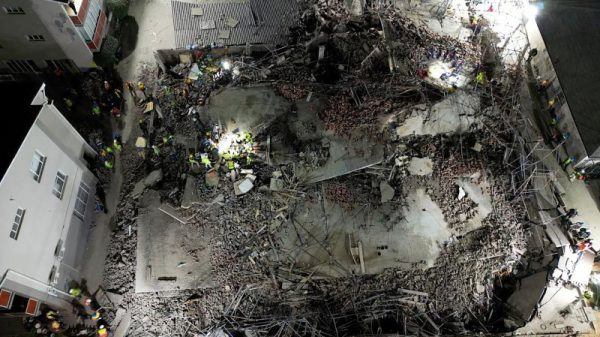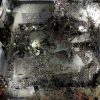It is almost impossible to remember life in Israel before Hamas launched its brutal October 7 attacks a year ago, killing more than 1,200 people and kidnapping more than 250 others. There is little point, because that life is gone for good. And not just because more than 100 hostages are still captive.
The same is true beyond Israel’s borders.
Israel, its enemies and allies are all harbingers and painful witnesses to a remaking of the region’s diplomatic and political architecture on a scale that could rival the upheavals of the Arab-Israeli conflict a half-century ago.
The post-October 7 changes are both inevitable and, in their current chaotic form at least, preventable. The civilian cost is mounting when diplomacy might have saved lives.
A year ago it seemed the political architecture of the region was on the cusp of significant change. Propelled by US incentives, Saudi Arabia and Israel seemed closer than ever to a historic normalization of relations. Diplomacy and the deft skills needed to stitch such a complex deal together were in the ascendency.
But the prospect of approaching peace and prosperity evaporated as Hamas surged through the Gaza border fences at sunrise that Saturday morning. Butchery was afoot.
Irrespective of whether Hamas leader Yahya Sinwar was calculating he could torpedo normalization and push the Palestinian cause ahead of regional priorities for peace and economic integration, in the short term he succeeded.
I can remember, with gut-churning clarity, the smell of rotting human flesh as we entered Kfar Aza, about 800 yards from the Gaza Strip. It was October 10, and Major General Itai Veruv of the Israel Defense Forces (IDF) was leading the first international press access to see the devastation of Hamas’ attacks.
He stood at the gates, quoting General Eisenhower when he reached the Nazi death camps in World War Two: “The first thing he said was bring the press here to see.”
Over the past year Israel has struggled to keep the world focused on those nation-changing events of that bloody weekend.
For the first time, many Israelis realized their state was no longer the safe haven for Jews they had always believed it to be. The idea that whatever prejudice and persecution they may face around the world, in Israel they had sanctuary, was destroyed.
What emerged that first week as a scramble to seal the Gaza border and chase down remaining Hamas cells inside Israel soon manifested as a red mist of revenge and retribution against the attackers, and anyone near them.
Israelis’ feelings of vulnerability haven’t gone, while national rage has been refined into a steely logic of regional deterrence, manifested by Israel’s right-wing Prime Minister Benjamin Netanyahu.
He has interwoven his own political survival, in part to escape accusations he failed to stop Hamas’ attacks, with bombastic new tactics shredding the old rule book and its red lines that previously prevented regional escalation.
It is being called “escalation for de-escalation,” but as October 7, 2024, arrives, de-escalation, and any form of day after plan from Netanyahu, are absent.
The Jewish state’s relations with US President Joe Biden’s White House, its most important ally, are at their lowest ebb in a generation. Nearly 42,000 Palestinians in Gaza have been killed, many by US bombs and bullets in Israel’s hands, authorities in Gaza say. IDF killings and arrests of Palestinians, some of them US citizens, in the occupied West Bank are unsustainable for many of Israel’s European allies whom after a year of waiting are beginning to curb arms supplies.
But the pressures on Israel to rein in its survival instincts at a time when it is riven with deep political, religious, and maybe existential divisions are having little obvious traction.
Israel’s wiliest nearby adversary and Iranian mega-proxy Hezbollah – a blight on Lebanese post-civil war democracy – which began escalating cross-border rocket attacks the day after October 7, has undergone a lightening defenestration over the past few weeks. Its leader Hassan Nasrallah and many of his top commanders have been assassinated in Israeli air strikes, its forces partially crippled, ahead of Israel’s launch of its third ground war in Lebanon in the past half-century.
Hamas’ October 7 attacks, if not coordinated in detail with Iran, certainly had its blessing. The theocracy has been the Palestinian terror group’s biggest backer for decades, funneling money, military material and know-how. Iran vows to destroy Israel and chase its biggest ally the United States out of the region.
It uses pro-Palestinian messaging to enflame passions on the ‘Arab street’ in the region, most of whom are Sunni like the Palestinians, and most of whose leaders consider Iran, a Shia theocracy, at best untrustworthy, at worst an adversary. In this way Iran holds off regional rivals.
The past year has revealed the extent of its plans and co-opting of Shia communities to build up pro-Iranian militias. Yemen’s minority Houthis are no longer only anti-Saudi stooges for the Shia clerics in Tehran, but have turned their Iranian-supplied ballistic missiles and drones on Tel Aviv.
Iran has also, aided and fronted by the Houthis, begun blocking Red Sea commercial shipping – more than a thousand miles from Israel – on the pretext of supporting the Gazans.
Tehran’s Shia proxies in Iraq have also answered its calls and begun escalating drone attacks on Israel.
It is a multi-fronted war, escalating faster than would have ever seemed possible a year ago.
Back then rocket sirens in central Israel were not part of daily life. Today parents inside their home shelters in Tel Aviv scan cell phones for messages from their children, serving on the front lines as they too once did.
Each generation here is trained to fight in the defense of the nation; where the country divide is over how long to keep that fight going before switching to diplomacy. The reality is, the longer the escalation goes on, the less control the country and its prime minister will have over the outcome.
Potential regional partners like Saudi Arabia are now demanding a steeper and steeper diplomatic off-ramp for Netanyahu.
The normalization between Israel and the most powerful Gulf state that seemed so close before October 7, is for now out of reach, Netanyahu unwilling and too toxic to be a partner in the deal.
It was a deal that would have given Biden a legacy to be proud of; for Saudi’s Crown Prince Mohammed Bin Salman, MBS, the legitimacy and security he craves; and Netanyahu, an inoculation against a millennia of animus.
Saudi Arabia’s price now is an “irreversible path” to a Palestinian state, which is an anathema to Netanyahu, his extreme nationalist right-wing cabinet, and in the wake of October 7, even further beyond the pale for much of the rest of the country too.
Days before the anniversary, a veteran sage of UAE diplomacy, Anwar Gargash, foreshadowed the influential Gulf state’s direction of travel, saying “the era of militia with sectarian and regional dimensions has cost the Arabs dearly.”
An end to Iran’s proxy powerplays and a path to a Palestinian state. The question is how to get there from here, particularly as the butcher’s cleaver is ascendant over the diplomat.
For now, in the absence of successful peace talks, uncertainty is the new certainty.






